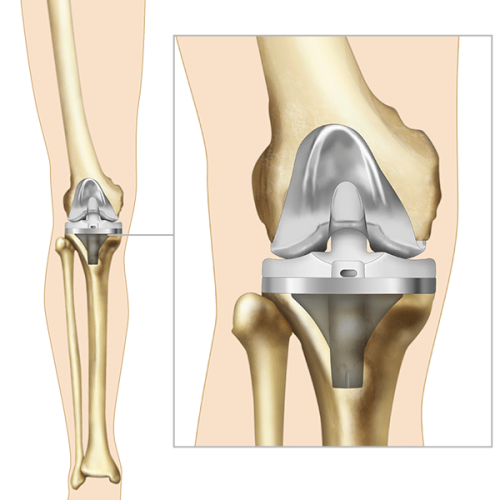Best Joint Replacement Hospital in Jaipur
Welcome to Priyanka Hospital, where we specialize in providing exceptional joint replacement surgery in Jaipur. As the top choice for individuals seeking effective solutions for joint problems, we are committed to delivering personalized care and optimal outcomes.
As the best joint replacement hospital in Jaipur, Priyanka Hospital offers a comprehensive range of services to address various joint conditions, including arthritis, degenerative joint disease, and trauma-related injuries. From knee replacement to hip resurfacing, we provide customized solutions tailored to each patient’s unique needs.
That’s why Priyanka Hospital provides comprehensive rehabilitation support to help patients regain strength, mobility, and function following surgery, ensuring a smooth and successful recovery.

Why Choose Priyanka Hospital For Joint Replacement in Jaipur
When it comes to joint replacement surgery in Jaipur, Priyanka Hospital is the name you can trust. Our experienced surgeons, comprehensive services, and patient-centered approach make us the preferred destination for joint replacement care. At Priyanka Hospital, we prioritize personalized care and patient satisfaction. Our compassionate staff ensures that each patient receives individualized attention and support throughout their treatment journey, from preoperative planning to postoperative rehabilitation. Schedule a consultation with us today and take the first step towards a pain-free and active lifestyle.
There are various types of joint replacement surgeries
There are various types of joint replacement surgeries, known as arthroplasty, which can be performed on different joints in the body:
Hip Replacement Surgery: This surgery involves replacing the hip joint or a part of it with a prosthesis. It can be either partial hip replacement or total hip replacement, addressing issues like hip fractures.
Knee Replacement Surgery: Surgeons remove damaged parts of the knee joint and replace them with plastic or metal components. Types include total knee replacement, partial knee replacement, kneecap replacement, complex knee replacement, and cartilage restoration.
Shoulder Replacement Surgery: This procedure involves replacing the damaged part of the shoulder joint with prosthetic components, addressing dysfunction and pain. Types include resurfacing hemiarthroplasty, hemiarthroplasty, stemless total shoulder arthroplasty, reverse total shoulder arthroplasty, and anatomic total shoulder arthroplasty.
Wrist Replacement Surgery: In this procedure, injured parts of wrist bones are replaced with artificial components to improve stability.
Toe and Finger Replacement Surgery: Damaged parts of toe and finger joints are removed and replaced with artificial components.
Ankle Replacement Surgery: This surgery treats ankle arthritis by replacing injured parts with metal or plastic components, improving mobility, stability, and reducing pain.
Elbow Replacement Surgery: Artificial joints replace elbow bones in this procedure, utilizing implants attached to arm bones and held together by plastic and metal hinges, restoring elbow motion.
Symptoms and Causes of Bone and Joint Disorders?
There are numerous factors that can lead to joint pain, potentially impairing joint function if left untreated. Severe pain can significantly impact one’s quality of life. It’s crucial to recognize the symptoms, understand the underlying causes, and seek consultation with a bone specialist for resolution.
Common symptoms of bone and joint issues include:
- Stiffness
- Painful movement
- Loss of motion
- Redness and swelling
- Swelling and inflammation
- Numbness or tingling
- Radiating pain
- Pain at rest
- Clicking, popping, grinding, or snapping sounds during movement
- Difficulty straightening the joint
- Limited range of motion
- Deformity
If experiencing any of these symptoms, it is highly advisable to visit an orthopedic surgeon at Wockhardt Hospitals for proper diagnosis and treatment.
Joint-related problems can arise due to various reasons, including:
- Osteoarthritis: A common condition characterized by cartilage deterioration.
- Rheumatoid arthritis: Joints, particularly fingers and wrists, become painful and swollen, often with morning stiffness.
- Bursitis: Overuse of common joints like knees, elbows, hips, and shoulders can lead to this condition.
- Gout: Accumulation of crystals in joints, commonly affecting the toes.
- Viral infections or fevers: These may exacerbate pain and discomfort during movement.
- Tendinosis: Inflammation of tendons, commonly affecting the elbow, heel, or shoulder.
Seeking timely medical attention and appropriate treatment can help manage and alleviate symptoms associated with bone and joint problems.
Explore Our Main Service
Cardiac Sciences
Clinical Diagnostics
Kidney Transplant
Critical & Intensive Care
Gynecology & Obstetrics
Neuro Sciences
Cosmetic Surgery
Spine & Scoliosis
Liver Care
Paediatric Cardiology
Genetic Sciences
ENT Surgery
Joint Replacement
Orthopaedics & Trauma
Pulmonology
Arthroscopy Sportsmedicine
IVF
Dental Sciences
Pain Clinic
Nephrology
Paediatrics
Health Checkup
Urology
Gastro Sciences
Dermatology
Emergency Medicine
Physiotherapy
Sleep Disorder
FAQs on Joint Replacement
What is joint replacement surgery, and when is it recommended?
Joint replacement surgery, also known as arthroplasty, is a procedure to remove damaged or diseased parts of a joint and replace them with artificial components made of metal, plastic, or ceramic. It is typically recommended for individuals with severe joint pain, stiffness, and limited mobility due to conditions such as osteoarthritis, rheumatoid arthritis, traumatic injury, or avascular necrosis that have not responded to conservative treatments like medication, physical therapy, and lifestyle modifications.
Which joints can be replaced, and which are most commonly replaced?
Joint replacement surgery can be performed on various joints in the body, including the hip, knee, shoulder, elbow, and ankle. However, the hip and knee joints are the most commonly replaced due to the high prevalence of osteoarthritis and the significant impact on mobility and quality of life when these joints are affected.
What are the types of joint replacement implants available?
Joint replacement implants come in different designs and materials tailored to the specific needs of each patient and joint. Common types of implants include metal-on-plastic, metal-on-metal, ceramic-on-plastic, and ceramic-on-ceramic combinations. The choice of implant depends on factors such as the patient’s age, activity level, bone quality, and surgeon preference.
What is the recovery process like after joint replacement surgery?
The recovery process after joint replacement surgery varies depending on the type of joint replaced, the patient’s overall health, and the surgical approach used. Generally, patients can expect to stay in the hospital for a few days for monitoring and rehabilitation. Physical therapy is an essential component of recovery to regain strength, flexibility, and range of motion in the replaced joint. Full recovery and return to normal activities may take several weeks to months, with gradual improvement in pain relief and function.
What are the risks and complications associated with joint replacement surgery?
While joint replacement surgery is generally safe and effective, it carries risks like any surgical procedure. Common complications may include infection, blood clots, implant loosening or dislocation, nerve injury, stiffness, implant wear or failure over time, and adverse reactions to anesthesia or medications. Patients should discuss potential risks and benefits with their surgeon and follow all pre-operative and post-operative instructions to minimize complications and optimize outcomes.
Still Have a Question?
If you cannot find answers to your queries, please fill out the enquiry form or call the number below. We will contact you shortly
